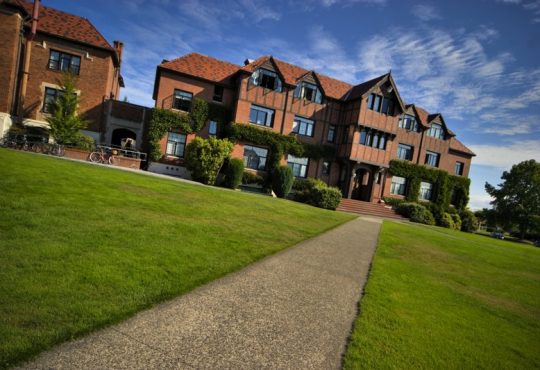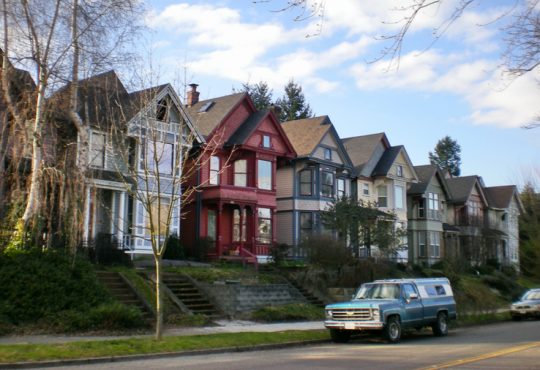By IDA DUNN-MOORE
Starting this year, the University took a major step by building a new residence hall and instituting a requirement that all students live on-campus for their first two years.
This requirement has its benefits: it generates revenue for the University and strengthens the campus community.
This trend suggests, however, that the University may institute an even longer on-campus living requirement, which would interfere with the pertinent experience of living off-campus, one that fosters independence and reality.
Puget Sound has a unique off-campus community in that nearly every student not living in student housing lives within a mile or two of the University.
Unlike larger “commuter” universities where students may take half an hour or more to commute to school and stay only for classes, living off-campus often means living close enough to see the campus itself, and doesn’t diminish student participation in school activities.
Living off-campus offers students a valuable life experience that bridges the extremes of residence life and post-graduate life.
Compared to other college towns, rent is relatively cheap in Tacoma.
Living in an off-campus house can teach the inestimable skills of money management, community involvement, cohabitation, negotiating leases and landlords and maintaining cleanliness, order and a consistent supply of toilet paper.
Living off-campus forces a student to engage with the community.
On the most basic level of community interaction, a student meets their neighbors and sees whatever part of Tacoma is closest to his or her commute.
Living in the North End can lead to a greater appreciation of the city’s good food options and appealing architecture.
Students that live off-campus also support local businesses by buying at local markets, coffee roasters, breweries and eating out at restaurants more often than when they lived on-campus.
Local Tacoma residents and Washington farmers benefit when students buy produce at the farmer’s market, and chefs and waiters profit from student’s patronage.
Having a lease and landlord, paying utilities, cooking for oneself and even being in charge of locking up the house all teach students important lessons about responsibility.
The financial management that comes with balancing rent, groceries, utilities and leisure is fantastic preparation for post graduate life.
Cooking not only charges a student with responsibility over their health, but over their time management.
And when we don’t have security to let us in, or doors that lock themselves as they do on-campus, we learn the value of taking responsibility for our private possessions and time.
Students who live off-campus must also learn to take responsibility for their actions.
For most, for the first time in their lives there is no mom, no dad and no RA.
Students are burdened with accountability for their own safety, the safety of others and maintaining good relationships with the neighborhood.
The most obvious examples of an off-campus student’s new obligations include maintaining a safer standard of living and partying experience.
Many look to theme row and Puget Sound’s other on campus houses as viable alternatives for living off-campus.
They are great options, but they may make things too easy.
Living in any residence owned by the University takes away fundamental life experiences that teach responsibility and foster relationships.
Not having to worry about utilities or even toilet paper, amongst other things, detracts from the necessary challenges that living as a student should entail.
A student who spends at least some of his or her time living off-campus will get a taste of the real world that on-campus living cannot offer.
This taste will help a Puget Sound graduate indefinitely in preparing them to move into their own place, likely in a new city.
College is the time to learn new things, and that includes living independently and learning to take responsibility for life and decisions.



